Why do we celebrate Halloween in the UK? Origins and meanings of the spooky tradition
If you're wondering why we celebrate Halloween in the UK, we delve into the history of the annual spook fest.
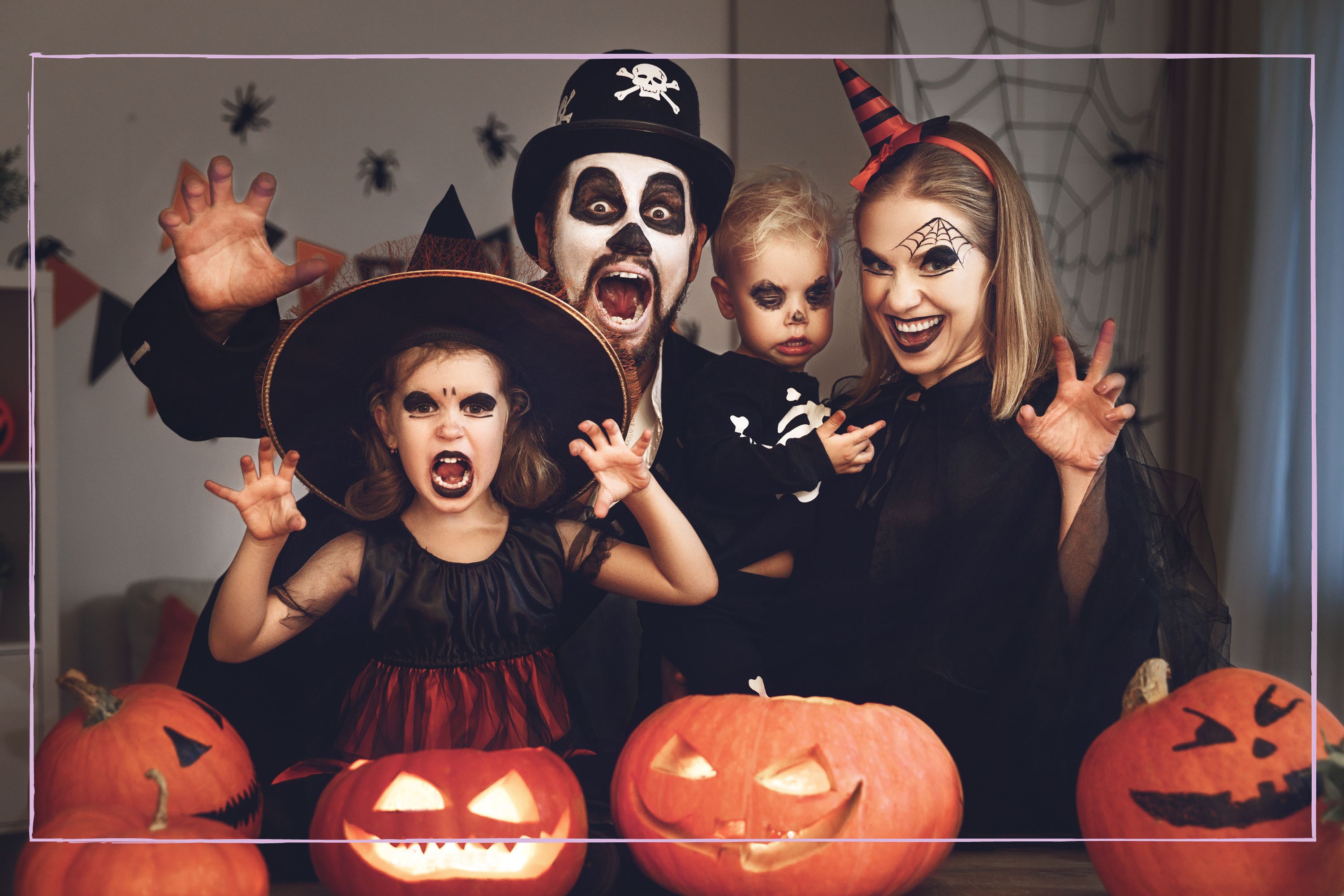
Parenting advice, hot topics, best buys and family finance tips delivered straight to your inbox.
You are now subscribed
Your newsletter sign-up was successful
As we gear up to celebrate Halloween by locating last year's costumes and choosing the best pumpkins, many are wondering why we celebrate Halloween and the origins of the tradition.
Halloween is undoubtedly one of the nation's favourite annual celebrations. For those planning a party for the mini ghosts, witches and other spooky little ones in your life, there's a multitude of fun Halloween games that'll keep them entertained for the duration. There's also no shortage of Halloween food ideas to keep energy levels high for the fun and games - everyone needs some witches fingers and cheesy broomsticks to munch on.
The celebrations don't just extend to the kids, and any parents getting involved in the dressing up might be looking for the best couples Halloween costumes to try out. And after Halloween is over, we have all the answers to the inevitable who is Guy Fawkes? questions.
While modern-day Halloween activities focus on trick or treating and visiting your local pumpkin patch, there are actually historic and religious meanings attached to the holiday. We've shared details surrounding the reasons why we celebrate Halloween, and the origins attached to its popular traditions.
Why do we celebrate Halloween?
Halloween is a long-held tradition in the UK dating back over 2000 years to Celtic times and their ancient festival of Samhain. It was believed that on that day, the souls of the dead returned to their homes, so people dressed in costumes and lit bonfires to ward off spirits.
During the time Celts were living across areas now divided into Britain, Ireland and northern France, a pre-Christian Celtic year was defined by the growing seasons of the predominantly agricultural people. Samhain marked summer's closure and the harvest, and winter beginning, when days would be cold and dark. The Samhain festival was started to symbolise the boundary between the worlds of the living and the dead. The Celts celebrated their new year on November 1, believing that on the eve of this day - Samhain then and October 31 now - the boundary between the living and dead worlds opened up and ghosts returned to Earth.
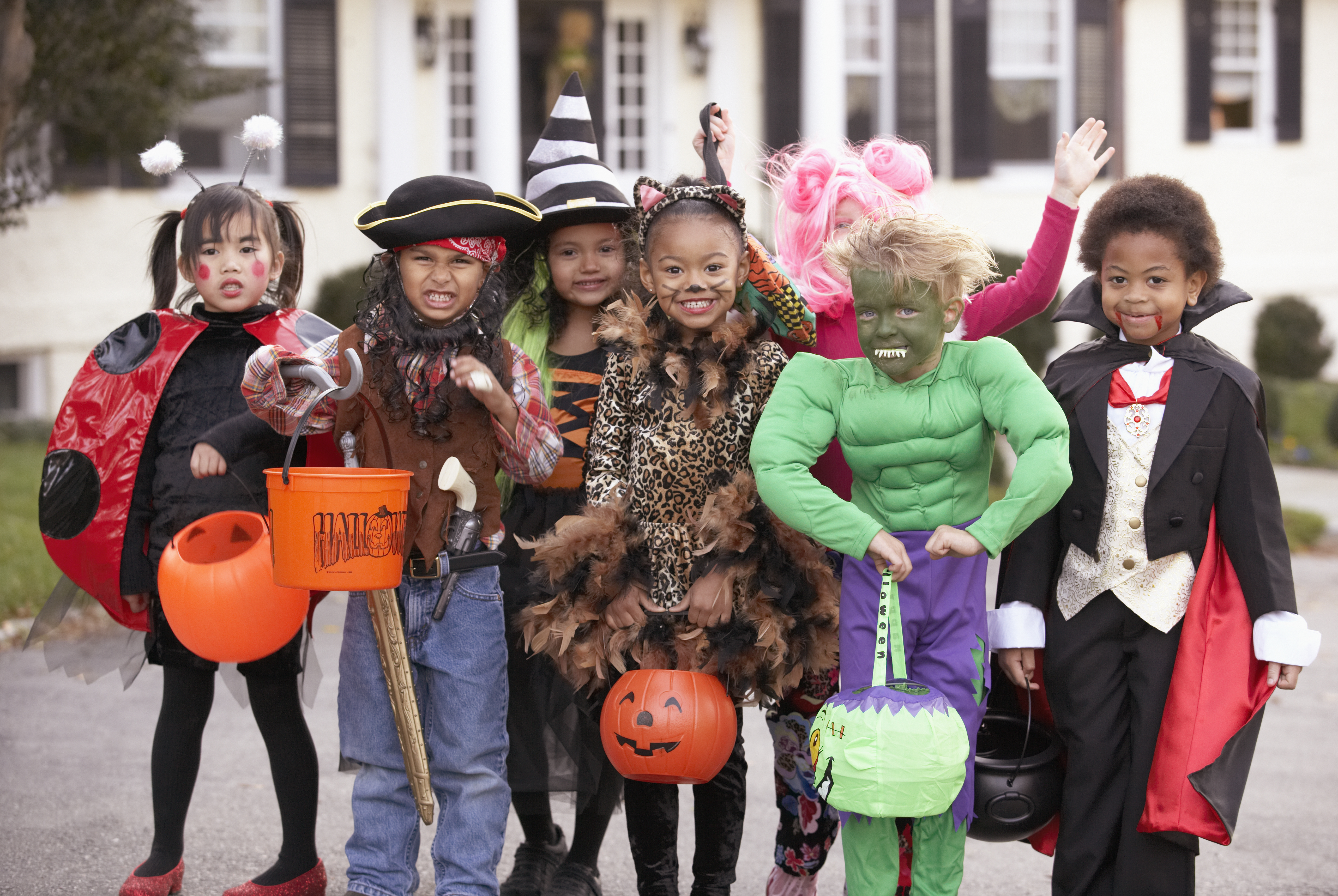
On the night of 31st October when Celts believed the ghosts would visit, large bonfires would be lit in each village to ward them off. Celtic priests, or Druids, would lead Samhain celebrations, ensuring each house had their fire lit from the embers of the sacred bonfire - this would symbolise both the protection from spirits, and keeping warm during the long winter months.
Parenting advice, hot topics, best buys and family finance tips delivered straight to your inbox.
Later in the eighth century, in a bid to remove pagan religion from the country, Pope Gregory III designated November 1 as a day to honour all the saints and martyrs of Christianity. Known as All Souls' Day, people celebrated in a way that was very similar to Samhain. There were huge bonfires, costumes and allusions to angels, devils and saints. The celebration was also called All Hallows' Day and the night before it was called All Hallows Eve - which is where the word 'Halloween' comes from.
How do we celebrate Halloween today?
In recent times, we follow a lot of the spooky Halloween traditions associated with modern ways of celebrating it, such as dressing up, trick or treating, and pumpkin picking.
People celebrate Halloween all over the world, with many cultures having their own take on the spooky time of year. For example, in Mexico, they have an annual The Day of the Dead (el Día de los Muertos) festival which runs between October 31st - November 2nd. During this celebration, families welcome back the souls of their deceased relatives for a reunion that includes food, drink and celebration.
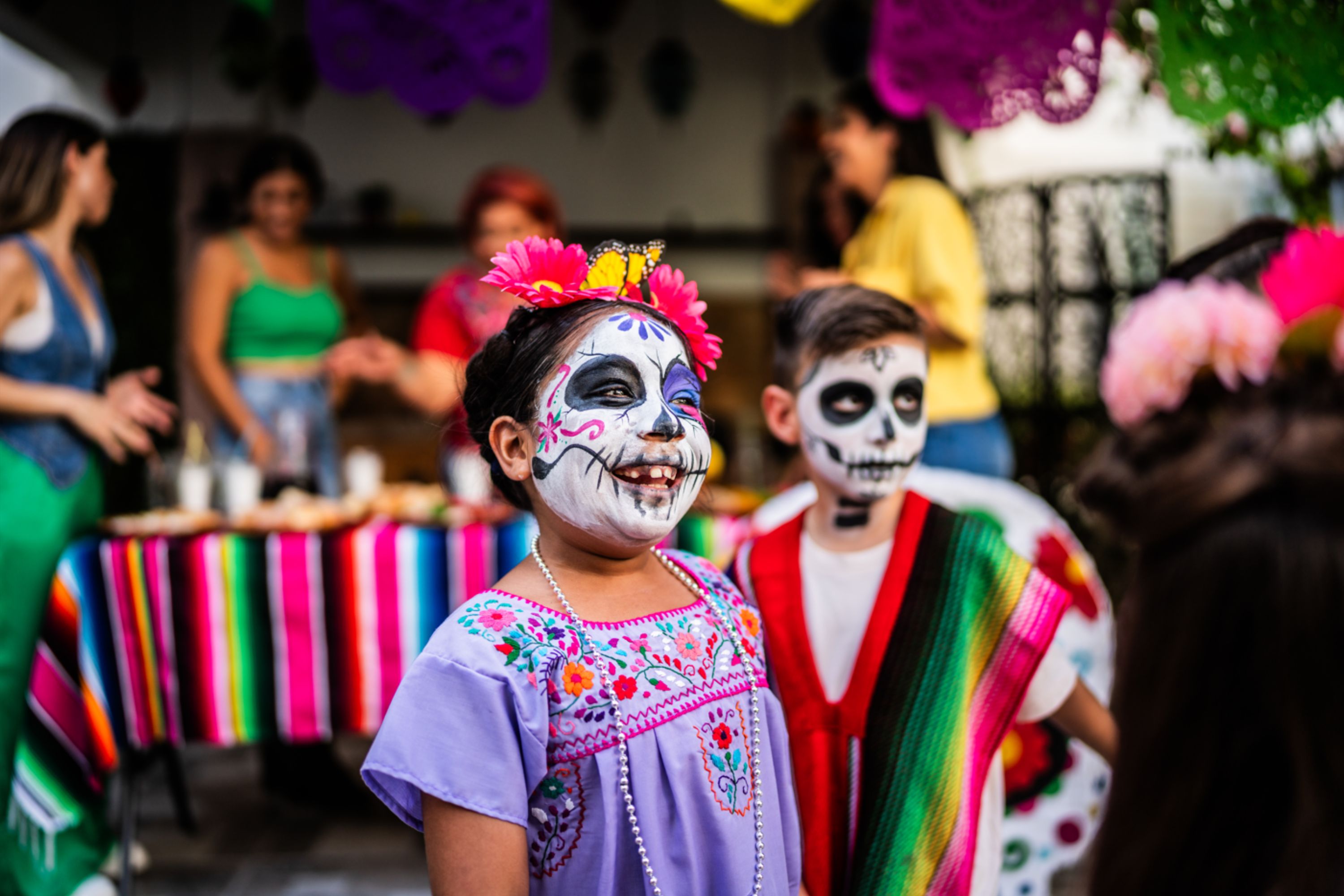
Meanwhile, in Japan, there's a large parade for those wanting to celebrate Halloween. The most famous one is Kawasaki Halloween Parade, which has a different theme each year to encourage others to dress up. There's even a reward for the best costume! For Japanese people, the costume is arguably the biggest part of their Halloween celebrations.
And in the Czech Republic, people place chairs by the fireside on Halloween night. There is one chair for each living family member and one for each family member's spirit, and this is their way of honouring the deceased during the Halloween period. The country also has their own All Souls’ Day, on November 2nd. This is referred to as dušičky, meaning little souls.
This tradition has been compared to Halloween, but Dušičky is more of a quiet time where people visit the graves of deceased family members to light candles, and place flowers and wreaths. During this time, most cemeteries will be flooded with twinkling lights from the candles.
What is the true meaning of Halloween?
While it doesn't have much of a religious significance in the UK anymore, Halloween was once the symbol of the end of summer and an important day in the pagan calendar.
It was also the Feast of the Dead. This might sound scary, but death wasn't feared by the pagans. They accepted it as just another part of life and used the occasion to respect and honour the dead. During celebrations, spirits of the recently departed are invited to take part in the feast. There's also dressing up, dancing and bonfires.
In addition to this, Samhain was a way to welcome the harvest in the 'darker time of the year', and could be similar to the harvest festivals we're familiar with today.
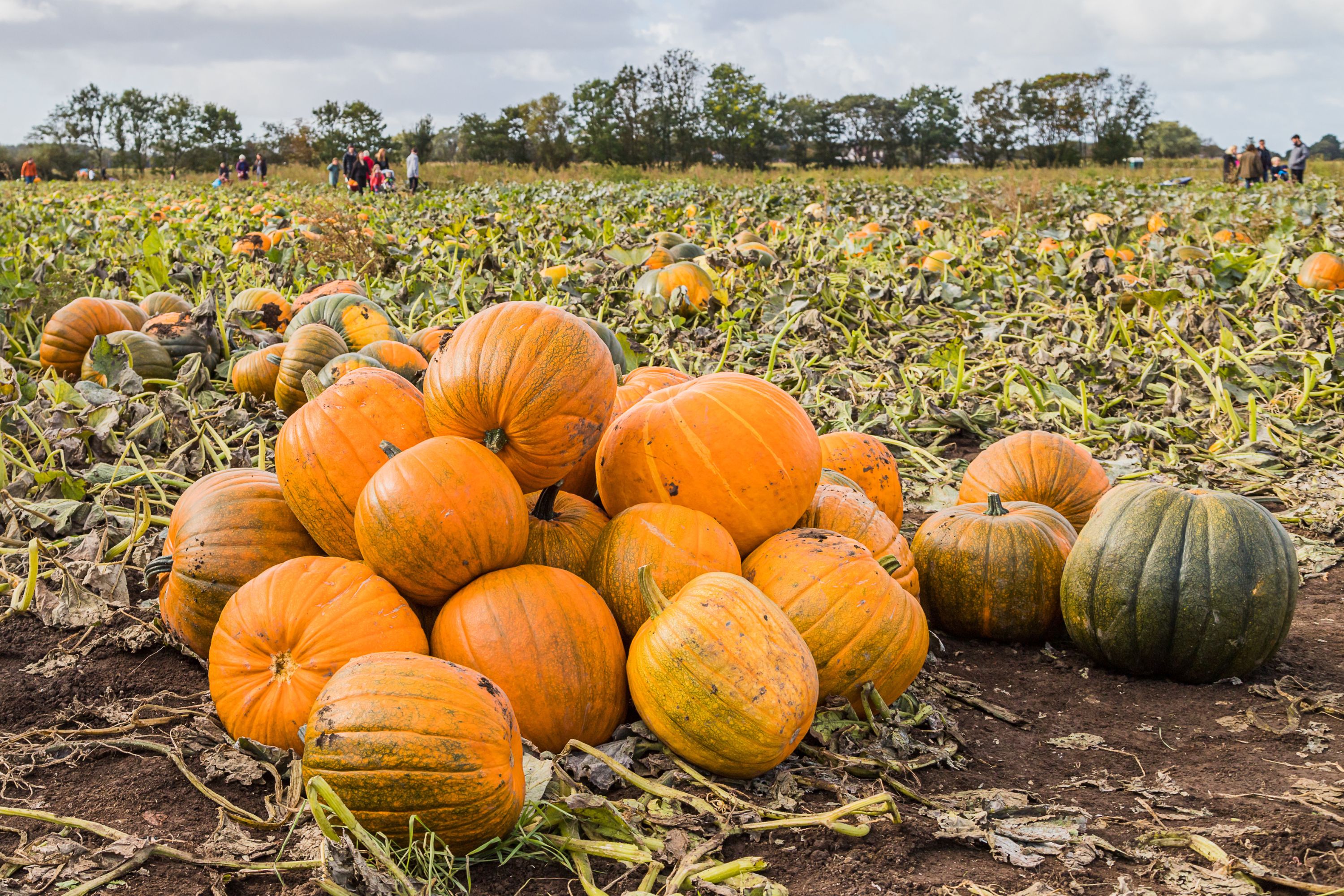
Is Halloween a religious celebration?
In Christianity, Halloween is All Hallows' Eve. It's the day before All Hallows' Day, which is otherwise called All Saints' - or All Souls' - Day. The name derives from the Old English 'hallowed', meaning holy or sanctified. This is where we got the modern-day name of 'Halloween' from.
The Western Church now observes All Saints' Day on November 1, after Pope Gregory III dedicated a chapel to all the saints in St. Peter's Basilica in Rome in the 8th Century. Traditionally, the Church held a vigil on All Hallows' Eve where worshippers would prepare themselves with prayers and fasting prior to the feast day itself.
Modern Halloween however, is secular. Anyone maintaining a celebration of the festival in a religious context would not refer to it as Halloween, with the modern practices associated with the day secular celebrations mostly deriving from folklore.
Halloween traditions and their origins
Why do we wear Halloween costumes?
Samhain inspired Halloween costumes, as dressing up was a key part of the festivities for pagans. Traditionally, Celts would dress as animals and monsters so that fairies wouldn't kidnap them. The Celts believed the barriers between worlds broke during the celebration.
People also used masks and costumes to trick spirits into thinking that they were one of them, as a form of protection so people could enjoy the festival without fear. In modern times, we have plenty of great costumes to choose from.
Some people choose to go as iconic horror characters, others go as pagan symbols like cats, witches and monsters. There are Halloween costumes for kids and with no reason why expectant mums should miss out on the fun, pregnant Halloween costume ideas exist to let everyone join in - it's a great time of year to get creative!
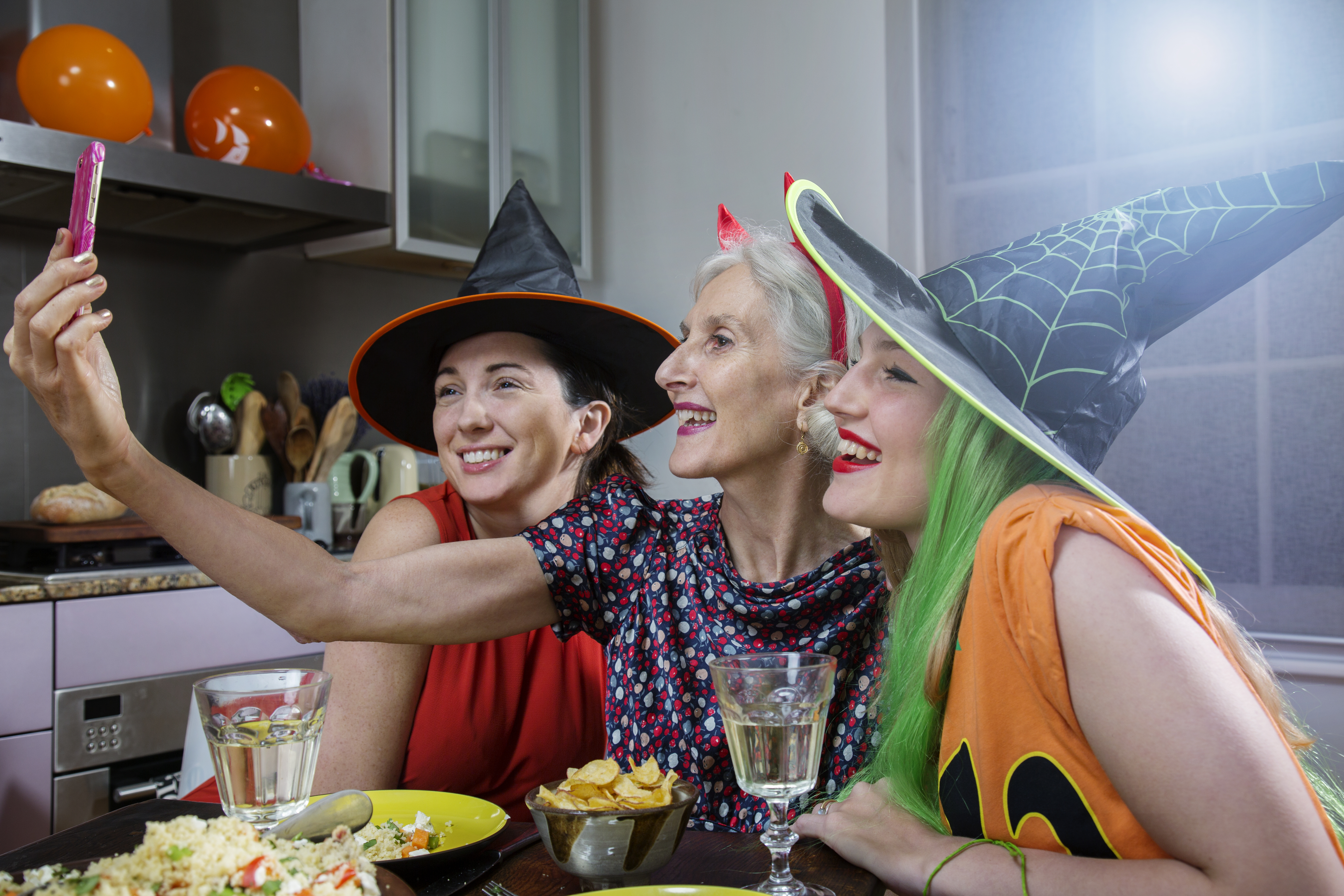
Why do we go trick or treating?
Trick or treating might be a strange concept, but it was very common for children to do this during Samhain. Trick or treating evolved from a ritual where people dressed in spooky costumes, performed dances and received treats to appease the evil spirits.
By the time Christianity had spread into Britain, a new practice had developed. During this time, poor people would visit the houses of the rich and receive pastries - called soul cakes - in exchange for promises to pray for the homeowners' dead relatives.
The soul cakes were sweet buns decorated with a pattern across the top similar to hot cross buns. They were thought to represent a trapped spirit being released from purgatory. As the festival became less about religion, sugary treats and money replaced soul cakes, and the act of praying for the dead disappeared.
In Scotland and Ireland, young people would visit houses and sing, recite a poem or perform another sort of 'trick' before receiving a treat of nuts, fruit or sometimes coins. This is likely where the term 'trick or treating' came from, as we know it in the modern day.
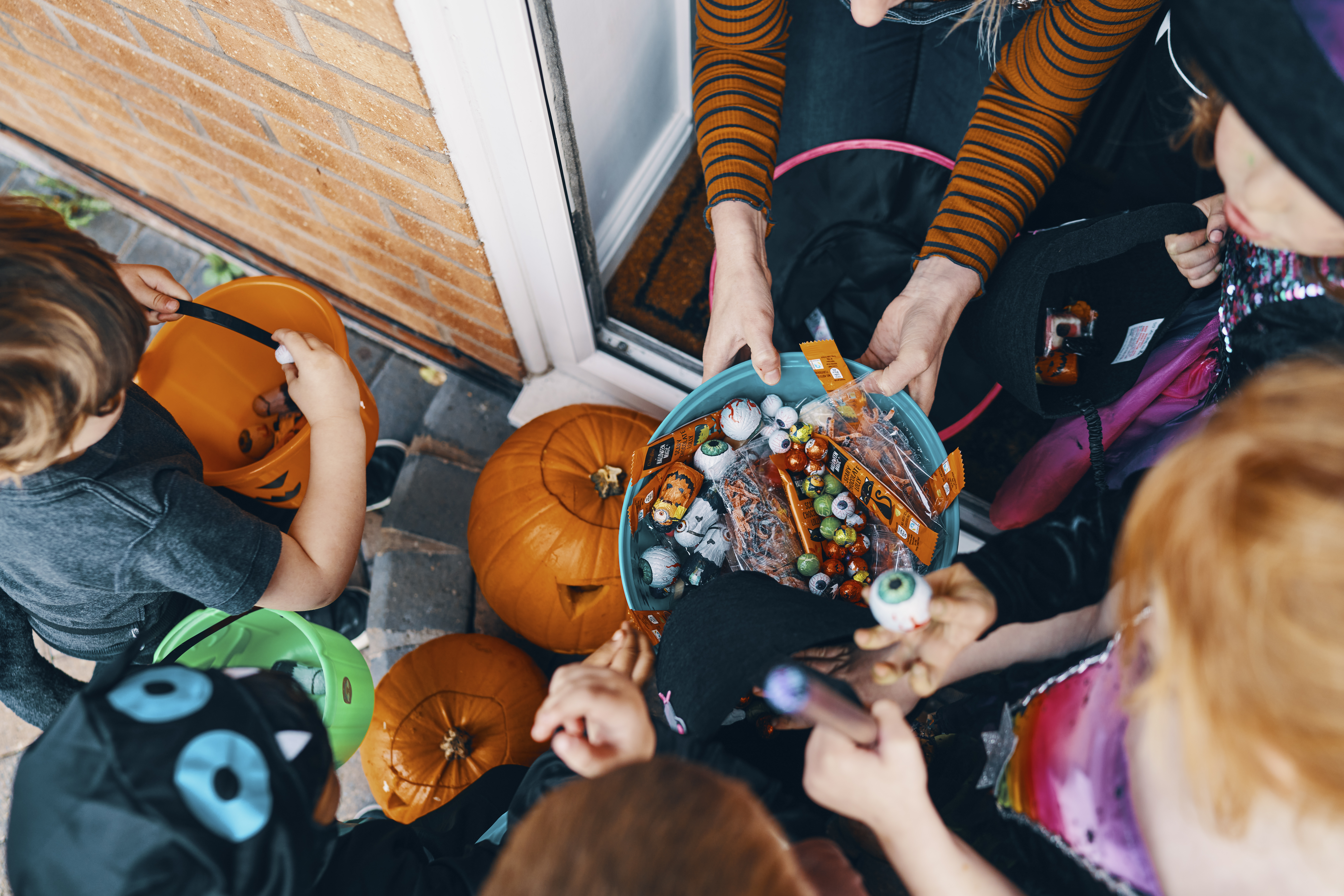
Why do we carve pumpkins?
Pumpkin carving originates from an Irish myth about a man named Stingy Jack, who tricked the Devil for his own monetary gain. When Jack died, he couldn't get into either Heaven or Hell, and had to roam the Earth for all eternity.
Jack's wandering soul scared people, so they'd carve scary faces into turnips to scare him away. When Irish immigrants moved to the US, they started to use pumpkins instead as they grow naturally there. The story of Stingy Jack is why Americans often call carved pumpkins Jack o'Lanterns.
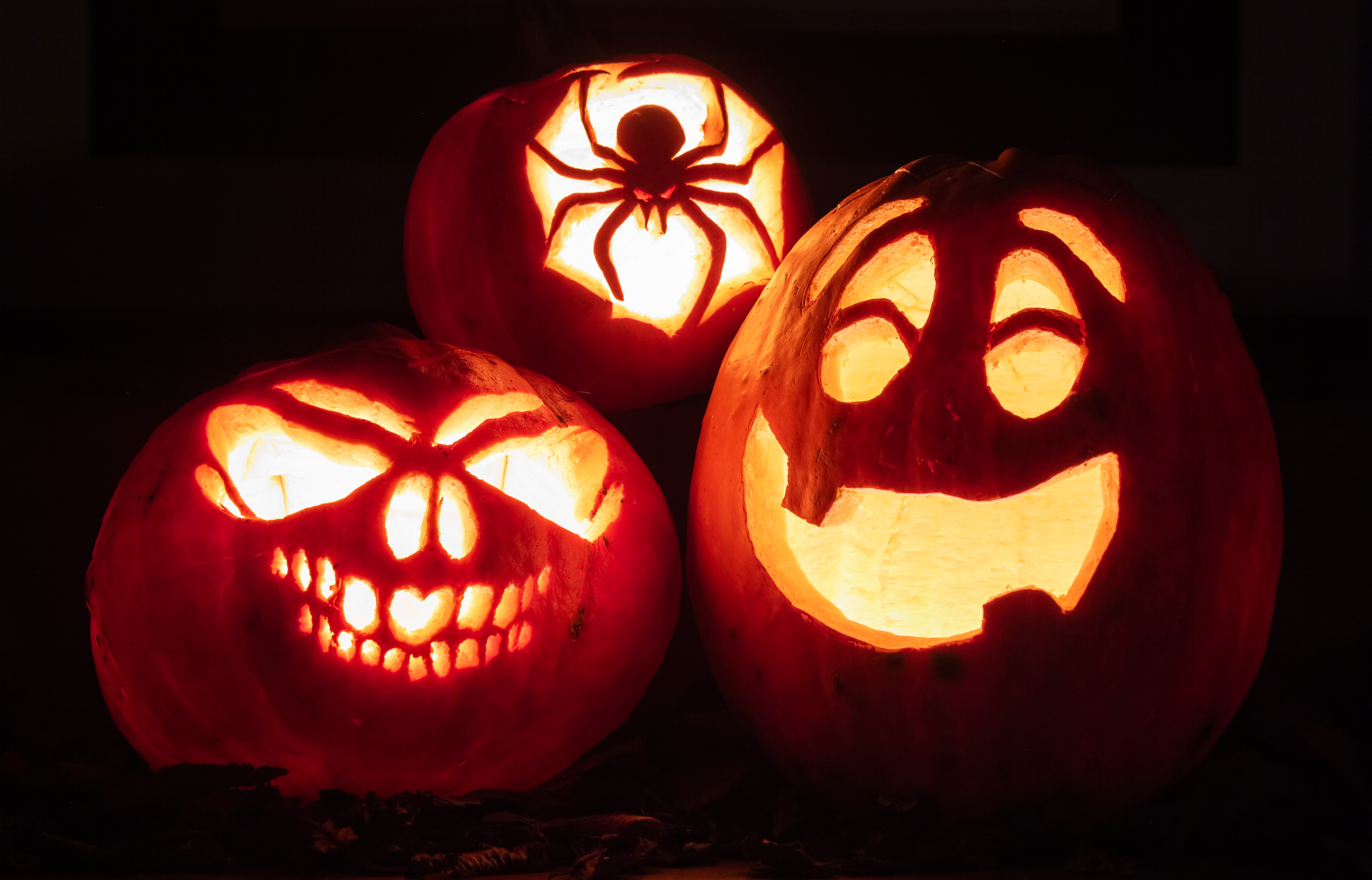
What are the rules for trick or treating in the UK?
Trick or treating is legal in the UK and although there are no specific rules attached to it, police have authority to tackle disruptive behaviour and unwanted disturbances caused by it.
If a child under the age of 16 is involved in antisocial behaviour while trick or treating, parents can be held responsible for any ensuing fines. There is also no minimum age attached to trick or treating in the UK, unlike some areas in the US who have set a minimum age of 12. Despite the lack of rules surrounding age limits, it is always advised that young children are supervised when out trick or treating.
Those taking their children out for some Halloween fun should stick to neighbourhoods they're familiar with. It is usually acknowledged that those with pumpkins placed outside their homes welcome trick or treaters - houses without them, or clearly displaying signs they wish to remain undisturbed, should be respected and avoided.
In related news, if you're after some Halloween jokes - look no further. For those staying in and wanting a more quiet evening, grab some popcorn and check out these Halloween movies. If you're expecting a baby near the popular festival, one of these Halloween inspired baby names could be for you. You might be interested to know why we celebrate Bonfire Night too.
Anna Bailey has been the editor of GoodtoKnow since 2018. Before joining the team she was Features Editor at MSN UK, where she oversaw Family Health and Days Out. Previously, she was Digital Lifestyle Editor for the broadcaster UKTV, and Lifestyle Editor for ITV.com. Anna studied Multi-Media Journalism at Bournemouth University and went on to gain her NCTJ and NCE journalism qualifications. Anna is responsible for driving the direction and editorial strategy of Goodto. A mum and experienced baby product tester, she is passionate about providing safe, trustworthy, and relatable advice for families of all kinds.